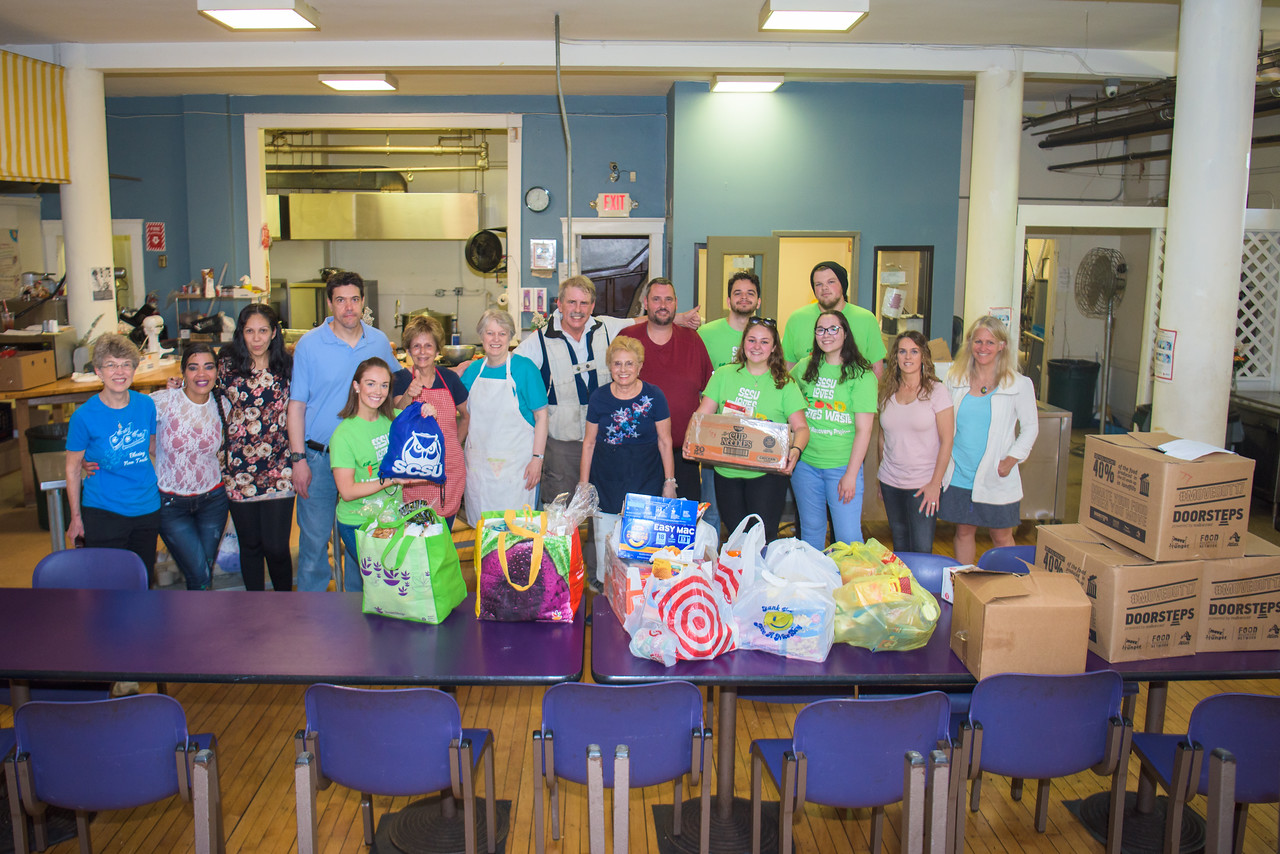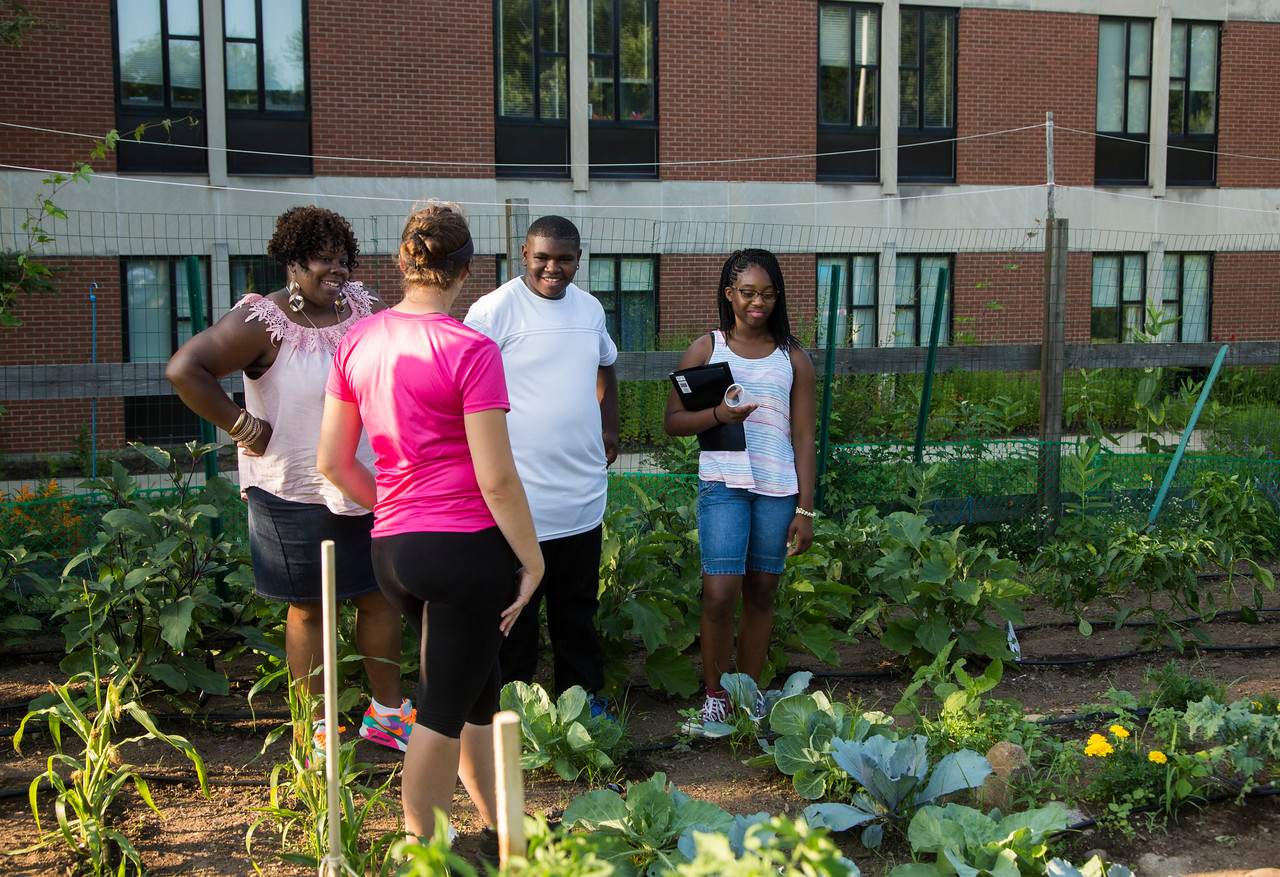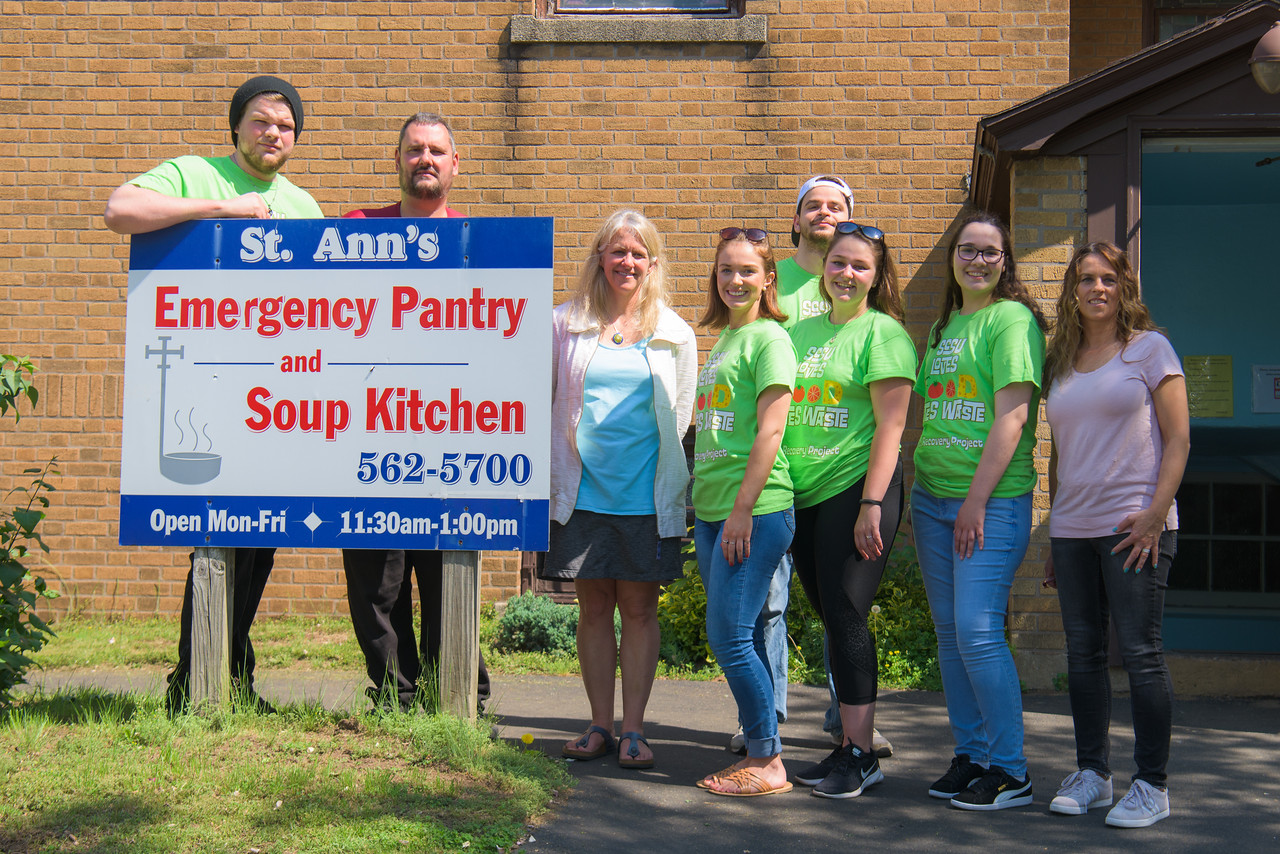About a quarter of New Haven residents don’t have enough food or enough money to buy food, and most people who can’t afford food don’t go hungry for just a day or a week — they experience food insecurity over long periods of time. The Food Recovery Network, the largest student movement against food waste and hunger in America, has created a sustainability network across the United States where “food recovery is the norm and not the exception.”
To address hunger in Greater New Haven, in 2015 the Office of Sustainability, along with Residence Life, partnered with Chartwell’s and the Food Recovery Network’s Connecticut chapter to collect excess unserved food from Conn Hall and campus food retail locations. The unserved food is delivered to soup kitchens like the one at St. Ann’s Church in Hamden. “Without the students, we wouldn’t have any of it,” says Suzanne Huminski, campus sustainability coordinator. Each semester, SCSU sustainability interns plan and manage all aspects of daily food recovery, including logistics, collection and delivery, scheduling, administrative meetings, tracking results, and communications with community partners.
The food recovery program is the fastest growing initiative that the Office of Sustainability oversees. Since 2015, over 30,000 pounds of food have been diverted from the waste stream, which equates to 23,000 meals served to those in need. The food recovery program has been such a success that there are plans to expand it. “We find that it really resonates with students, from donating the food to thinking about where the food is going and how’s processed,” says Heather Sterns, recycling coordinator.

The nonperishable food collection is another initiative that engages students. At the end of each semester, when they move out of their residence halls, resident students are encouraged to donate their unused, nonperishable foods instead of throwing it all away. Julie DellaVecchia ‘17, now a university assistant in the Sustainability Office, notifies students months beforehand with handouts and flyers, asking them to save as much food as they can before collection. The efforts for the 2018 spring semester yielded 2,500 pounds of nonperishable foods to go to people in need.
The impact of Southern’s sustainability efforts isn’t just felt on campus. “We make sure to reach a broader campus community and the city of New Haven to promote and facilitate sustainability,” says Huminski. Fighting food insecurity and giving people in the Greater New Haven area not just the resources they need, but the education to produce these resources, is just one way Southern gives back to the community.
The campus garden is another example of Southern’s outreach. The garden is student-run, and the produce grown in the garden is donated to organizations in the community, such as soup kitchens and emergency food pantries. Jennifer Anaziano, ‘18, is one of the sustainability interns who works in the garden. “We do things like weed, and recently we’ve planted more basil plants and a butterfly bush,” says Anaziano, adding, “we grow produce without using any pesticides. We only use organic chemicals.” In 2017, the garden was able to donate over 900 pounds of food to organizations in the community.
Last year, the Sustainability Office partnered with CARE (Community Alliance for Research and Engagement) and New Haven Farms to allow the students to grow more produce and offer nutrition programs, cooking demonstrations, and garden tours to families during the summer. Founded in 2007, CARE works to identify solutions to health challenges through community-based research and projects focusing on social, environmental, and behavioral risk factors. The summer garden nutrition program is running again this summer, again serving area residents who want to learn about growing fresh fruits and vegetables, nutrition, and healthy cooking. Many of the participants don’t have a yard, so they can’t have a garden, and they enjoy watching the vegetables grow and learning how to cook with fresh produce.

Having people take what they learn from the community garden and sharing it with friends and family is a major step towards a more sustainable future, “Sustainability is a long-term issue that is never going to go away, so having a population that is prepared to manage those challenges in the future is vital,” says Huminski.


